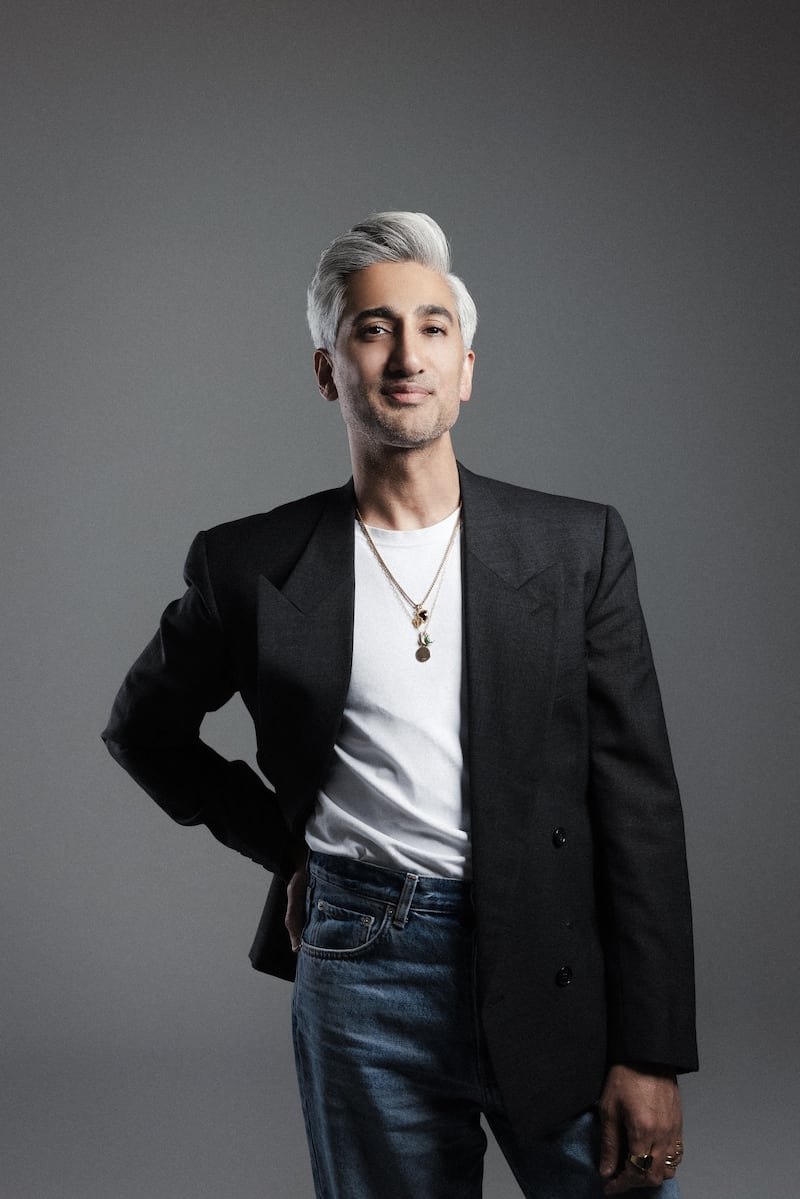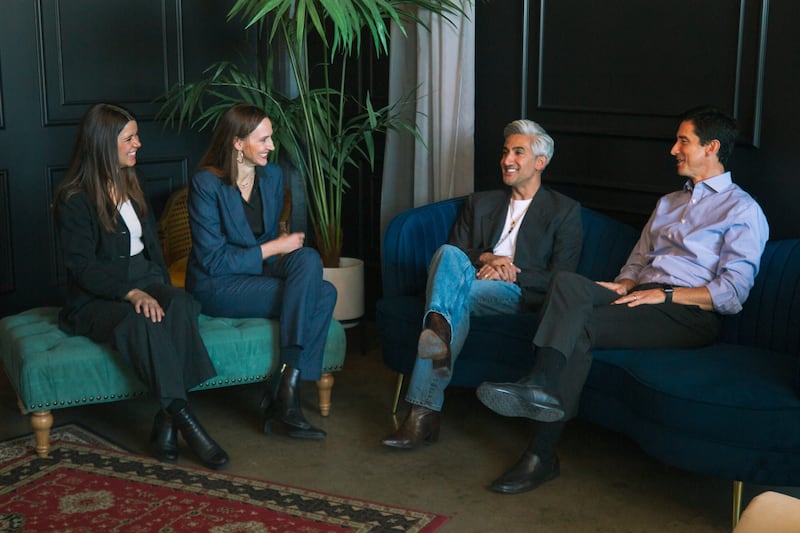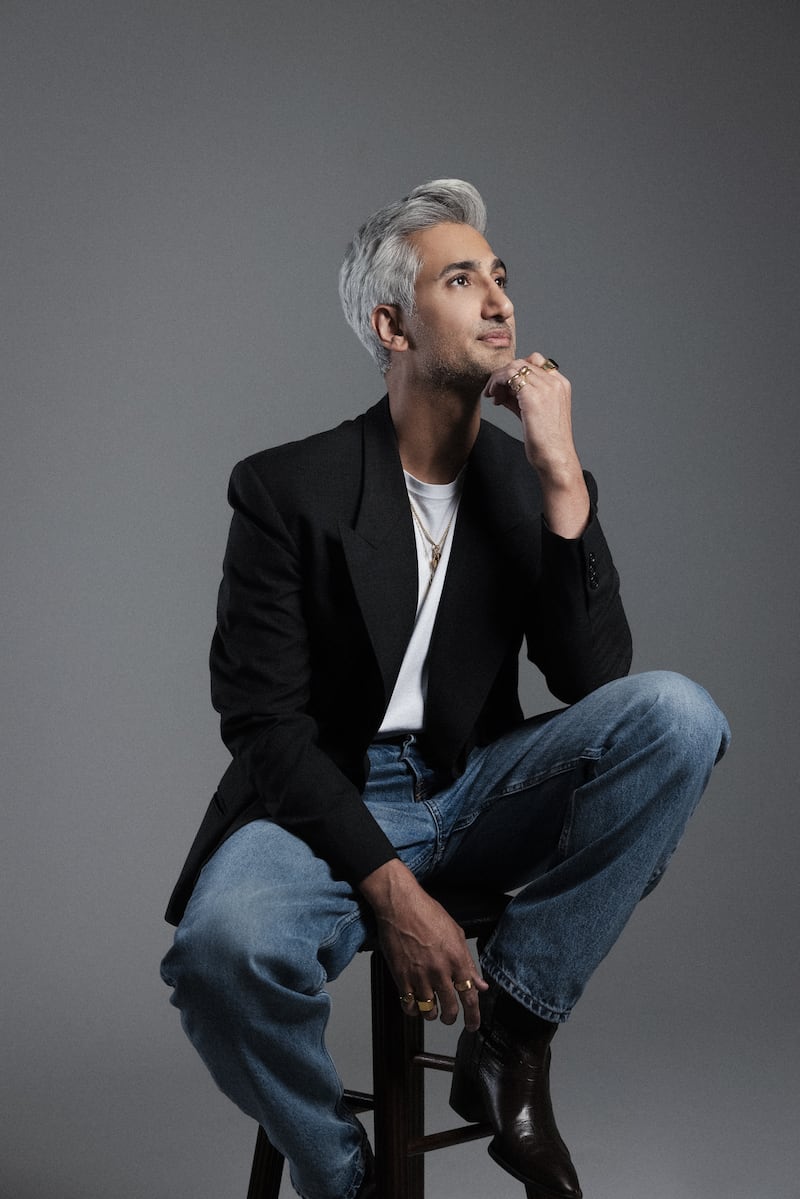
Photo by Ori Media
In a conversation with Jonathan Freedman, president and CEO of World Trade Center Utah, Tan France shares his secrets to staying relevant in fashion and business, trends for 2024, advice for fashion companies and more.
JF: Tan, you’re a designer, entrepreneur, TV personality, author, husband and father of two. Walk me through the journey that got you to this point.
TF: First off, that list is in the wrong order. I am a father first and foremost now—it takes over your life completely. But how I got here is pretty simple: I’m the child of entrepreneurs, and I always expected that I would eventually be an entrepreneur. And to speak frankly, I just don’t work well for others. I like working with others but don’t like working for someone.
Watching my parents and grandparents encouraged the business side of me. My grandparents were in the business of making denim products, so I understood apparel. I went to fashion college and moved to America. I thought I’d like to start a company by age 35.
I worked for a company called Shade Clothing from 2008 to 2010. I loved it, but I also wanted to make the style of clothing that I wanted to make. They were selling the business, and I was losing my visa because it was contingent on my employment at Shade. So I thought, “What am I going to do? I’d better start my own business now.” I’m British, studied in England, and wanted to make European-style clothing. I launched my first business, Kingdom and State, with $13,000.
I sold my businesses just before I got on “Queer Eye.” I attended the three-day audition in Los Angeles and got the job a few days later. After “Queer Eye,” that’s when life got really ridiculous—but it’s also opened me up to more opportunities than I could dream of.

Utah Business Editor Mekenna Malan and Editor-in-Chief Melanie Jones in conversation with Tan France and Jonathan Freedman. | Photo by Julia Breinholt-Pappas
JF: You have a creative mind and a business mind. Please speak to your ability to pivot and reinvent yourself.
TF: I’ve watched many people around me behave very differently in entertainment because they weren’t entrepreneurs. It’s given me a really interesting perspective of Hollywood. So many people just wait for things to come to them. They stop trying or think they are big enough to coast for the rest of their lives. When those who work with me—my agents, in particular, WME and UTA—make it clear that I don’t operate like most entertainers, it makes me really proud. I was never meant to be an entertainer. I never planned on being an entertainer. I see this purely as a business.
I understood what it felt like to be broke most of my life, and I learned very early on to be nimble. In all of my businesses, if something’s not working—it doesn’t matter how good you think the product is—switch it up and move on to something else. I think that is the biggest issue with young brands or smaller brands I consult: they believe they’ll succeed even if they haven’t seen profit in five years. If it hasn’t succeeded in a few months, you may want to reconsider. If you truly want to succeed in your business, you have to pivot a bit, and you’ve got to accept that sometimes you get it wrong.
JF: You’ve chosen to make your home here in Utah as opposed to a global fashion capital. What do you see as Utah’s competitive advantage?
TF: I chose to make my home here because I love Utah and always will. Even on my first visit, I knew this would be home. But I think what gives Utah its competitive and creative edge is our women. Many women get married quite young. The economy isn’t easy on most families; therefore, they can’t rely on just one income. These women have created businesses and opportunities for themselves. They see what is lacking in our community, in their homes, in their children’s lives and their married lives. The creativity of women in Utah is what is going to continue to keep us very strong when it comes to business.
JF: What advice do you have for aspiring entrepreneurs?
TF: One of my only issues with new businesses in Utah is that they often take something that already exists, do their version of it and undercut the other person. If something is being done already, what’s your unique take on it? What can you do to make it special and make it yours? You want to be able to say, “That’s mine. I put that out into the world.” Not, “That person did it, and I knocked them off by $10.” That’s nothing to be proud of.
When somebody wants to start a business, they have to believe they’ve got something that no one else has, and they need the world to see it. Passion is the only thing that will motivate you once you’re in it and realize that you can’t just clock [out] at 5 o’clock. You’ve got to care about the product you’re putting out there or the service you’re offering.
Understand what makes your offer unique and get your message out there in a way that is appropriate for today’s world. If you’re not good at social media, your business probably won’t succeed. Also, if you try and do it siloed with no support—if your partner, family or friends can’t help—it will feel really lonely. Build your community before you start your business because you’ll need a lot of help.
I am Muslim, and it’s part of our religion not to pay or receive interest. None of my businesses ever had financing. I can’t have a mortgage or take out loans. That is the greatest thing I have in my arsenal. If you are in a position where you can start your business with saved funds, that will go such a long way. I worked as a receptionist for the first two years of my business, and I didn’t pay myself for my first three years of business. You can’t always start your business and quit your day job all at once. Be practical about it.

Photo by Ori Media
JF: Wrapping up now, I’d love to know your hair advice for the rest of us.
TF: This is for every man. If you’re watching the Emmys and you’re like, “Gosh, how did they get their hair to look so nice?” It’s a blow dryer. Do you think hair like this just happens naturally? It doesn’t. Pomade and a blow dryer will change your life. I also give a tutorial on how I do my hair on YouTube.
JF: Lastly, in the spirit of the fashion issue, what trends do you see coming down the pipeline in 2024?
TF: So much color. Yellow is a big color for next season, as we’ve seen with Versace and Miu Miu. Mixing textures—we’re seeing so much texture on the likes of Prada and Dior. Tailoring is always essential, but we’ll see great, oversized tailoring in particular this coming year. And let’s steer clear of streetwear; it’s dead.


